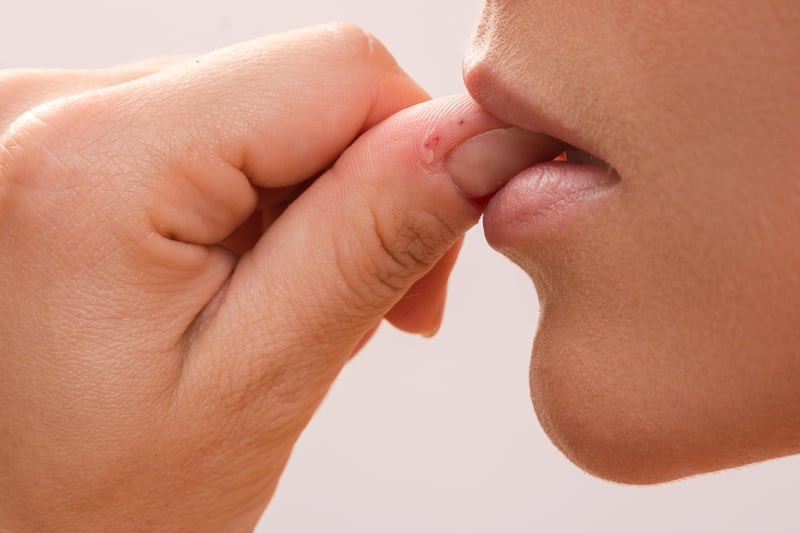Get Healthy!

- Cara Murez
- Posted July 20, 2023
Bite Your Nails or Pick at Your Skin? A New Study Has a Solution for That
If you just can't stop biting your nails, picking at your skin or pulling out a hank of hair, especially when you're stressed out, here's something to try that just might work.
Instead of nibbling, picking or pulling, simply touch your skin gently, such as by lightly rubbing the fingertips, palm or back of arm, at least twice a day.
That strategy, called "habit replacement," helped 53% of participants in a new six-week study cut back on their unwanted behavior, a new study shows.
"The rule is just to touch your body lightly,"lead study author Steffen Moritz, head of the clinical neuropsychology working group at University Medical Center Hamburg-Eppendorf in Germany, told NBC News. "If you're under stress, you might perform the movements faster, but not with more self-applied pressure."
These body-focused repetitive behaviors (BFRB) are believed to affect about 5% of people worldwide.
The new study included 268 people. They either had trichotillomania, a condition in which people respond to stress or soothe themselves by plucking out their hair, or they repeatedly bit their nails or the inside of their cheek.
Members of the control group were told they were on a waitlist for treatment (which they received after the study ended). Other participants were taught how to form a replacement habit through a manual and video.
Those who bit their nails appeared to have the most benefit. About 80% of people in the treatment group said they were satisfied with the training and 86% would recommend it.
Although more research is needed, this strategy could join existing behavioral techniques such as decoupling and habit reversal training, which are used to help people with BFRB.
In decoupling, someone might replace a behavior like nail biting with something that starts in a similar way, such as raising the hand to the face, but finishes by touching an earlobe instead of chewing the nails.
In habit reversal training, someone might similarly engage in a different behavior.
"So, they might involve, for example, clenching your fists really tight when you have an urge to pull your hair or pick your skin. It might be sitting on your hands,"Natasha Bailen, a clinical psychologist at the Center for OCD and Related Disorders at Massachusetts General Hospital and Harvard Medical School, told NBC News.
Sometimes, medications such as antidepressants are prescribed to people with these behaviors, and cognitive behavioral therapy can be another treatment option.
Moritz estimated that one-third to one-half of patients benefit from decoupling, but the rest do not.
"And so the idea was to find another technique that is perhaps more suitable for these nonresponders,"he said.
John Piacentini, board president of the TLC Foundation for Body-Focused Repetitive Behaviors, said the study raises awareness about these conditions.
"There are reasonably good treatments out there that most clinicians aren't aware of or don't do,"he told NBC News.
"In this population, we're really looking for treatments that are going to really impact or really reduce the severity of these specific symptoms,"Piacentini added.
The "proof-of-concept" research needs further confirmation, but experts were encouraged by the findings.
"I was very excited that there's more work that's being done in this self-help area,"Bailen said.
"Getting access to mental health services can be a real challenge these days and waitlists can be incredibly long,"she said. "But I think that the more research that we're able to do, and the more we're able to develop these self-help materials, we can help narrow that treatment gap. And that's definitely important."
The findings were published online July 19 in the journal JAMA Dermatology.
More information
Mental Health America has more on trichotillomania.
SOURCES: JAMA Dermatology, July 19, 2023; NBC News, July 20, 2023







